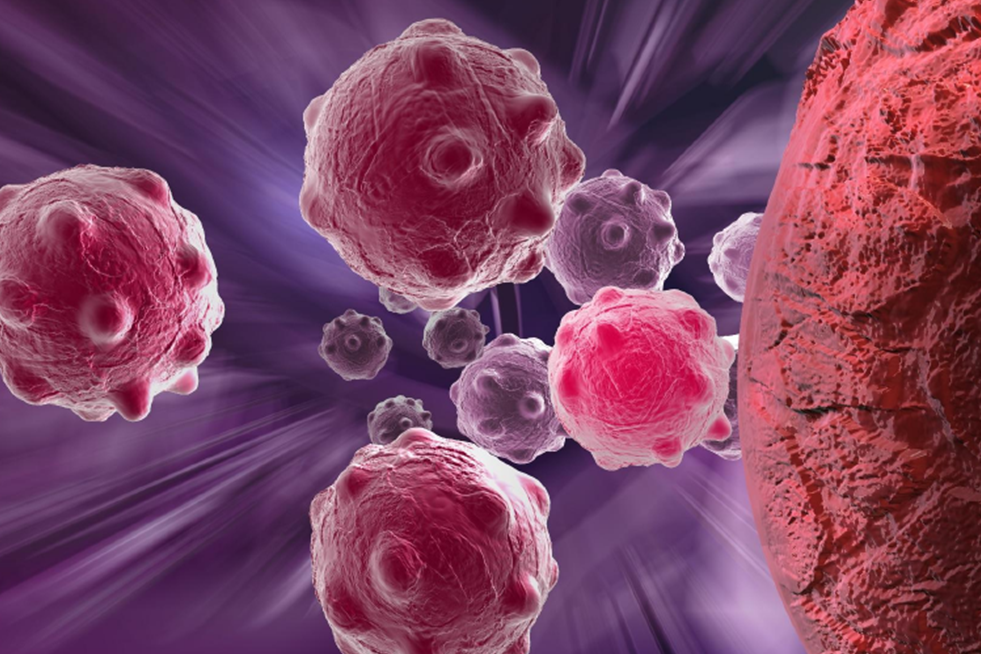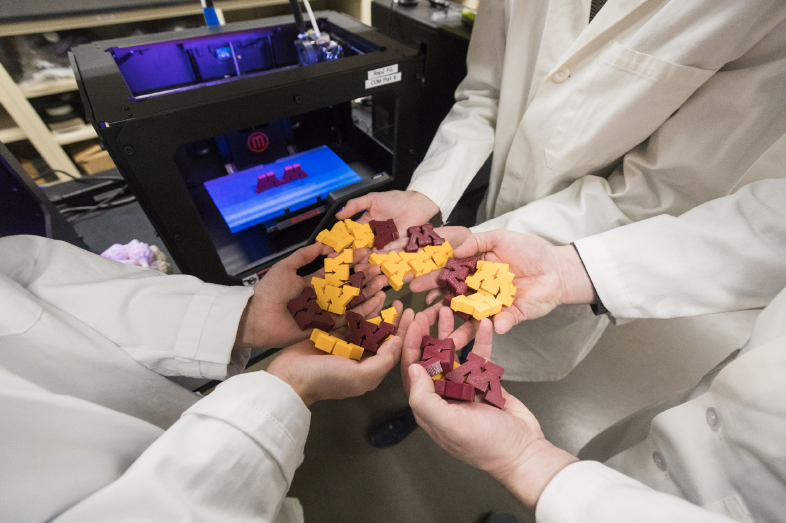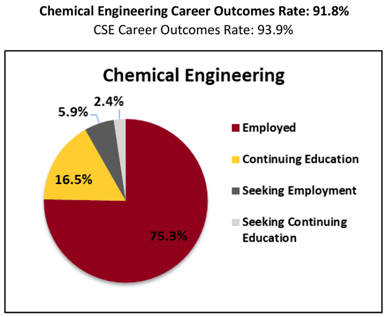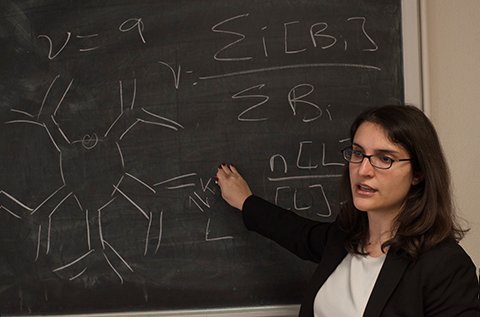Bachelor of Chemical Engineering


Chemical engineers integrate molecular scale knowledge of chemical and biochemical systems with complex decision-making to develop innovative products and processes impacting all aspects of our lives, including food, energy sources, drinking water, clothing, and medicine. The Chemical Engineering program at the University of Minnesota, which is accredited by the Engineering Accreditation Commission of ABET (www.abet.org) is over a century old, resulting in a unique alumni network of over 7000 members.
Our students are taught by award-winning faculty including 2 Regent professors, 8 Distinguished Mcknight University Professors, and 2 CSE Distinguished Professors. The core courses in the program are team taught by several faculty members, maintaining close contact between students and faculty not only in lectures but also in the smaller recitation sessions that focus on problem-solving.
Read below to learn more about the curriculum and common career paths for our graduates, and click here to learn more facts about the Bachelor of Chemical Engineering at UMN! Visit the Undergraduate Opportunities page to learn more about department scholarships, research experiences, and student organizations.
What do Chemical Engineers do?
Energy & Sustainability

Chemical engineers work with molecules and materials while also dealing with large scale processes at scale. This framework positions them uniquely to tackle the net zero and environmental remediation challenges facing society in quantitative and practical ways. The rapid timeline of our energy transition means that chemical engineers will play a fundamental role in reshaping the energy landscape—from carbon-free hydrogen, CO2 capture and conversion, and electrolyzers—and at the same time reshape the entire chemical industry, one that provides more than 60,000 products—ranging from sustainable plastics to modular small-scale chemical plants. New vistas of chemical engineering have appeared on the horizon to facilitate this transition: power-to-X, biochemical factories, carbon capture and storage (CCUS), data science, etc. Chemical engineers are poised to change the energy landscape of tomorrow.
Human Health & Biotechnology

Chemical engineers who study and engineer biological systems seek solutions to vexing problems related to human health, energy production and the environment. Many chemical engineers work on the large-scale biomanufacturing of small molecule and protein-based medicines that are made via chemical synthesis or grown in microbial or mammalian cells, as well as emerging cell-based therapies. In addition, chemical engineers work in areas ranging from protein engineering for discovery of more effective therapies and diagnostic probes, to the design and synthesis of bioartificial tissues and nanoparticle based drug-delivery vehicles, to metabolic engineering of prokaryotic and eukaryotic organisms for targeted chemical synthesis.
Advanced Manufacturing

Advanced manufacturing involves integration of innovative technologies into manufacturing processes to optimize efficiency and maximize flexibility, leading to improved product quality, faster time-to-market, reduced cost, and minimized energy utilization. Chemical engineers use their expertise in process design and control to develop modular processes, develop sensors and actuators for process control, integrate artificial intelligence into process simulation and control, design sustainable processes, and co-optimize products, processes, and supply chains.
Data-Driven Discovery & Design

Chemical engineers employ Artificial Intelligence and Machine Learning to guide the discovery and design of new materials, such as catalysts and drugs, by identifying features (descriptors) that optimize multiple performance metrics such as activity and selectivity, and new processes by identifying and screening numerous reaction synthesis pathways between different feedstocks and desired products. In addition, they lead the quest towards automating testing, experimentation, and operation of chemical processes to maximize efficiency and productivity.
Where do our graduates go?

Examples of companies that hired our 2022 graduates:
Energy/Sustainability: Flint Hills Resources, Blue Planet Energy Systems, EcoLab
Biomedical Technologies: Boston Scientific, Medtronic, Takeda, Beckman Coulter,
Food/Agriculture: Cargill, General Mills, Bayer Crop Science
Consulting/Engineering Consulting: Accenture, Deloitte, Perficient, Stone & Webster
Consumer Products: Procter & Gamble, Sherwin-Williams
Aerospace: Ball Aerospace, Rockwell Collins
Machinery/Automation/Controls: Emerson, Novaspect
Semiconductors: Infineon Technologies, Onsemi, Seagate
Bachelor of Chemical Engineering Resources
Popular Minors and Double Majors for ChE Undergraduates
Contact
Students interested in majoring in Chemical Engineering or Materials Science & Engineering must apply for admission through the College of Science & Engineering. Learn more:

